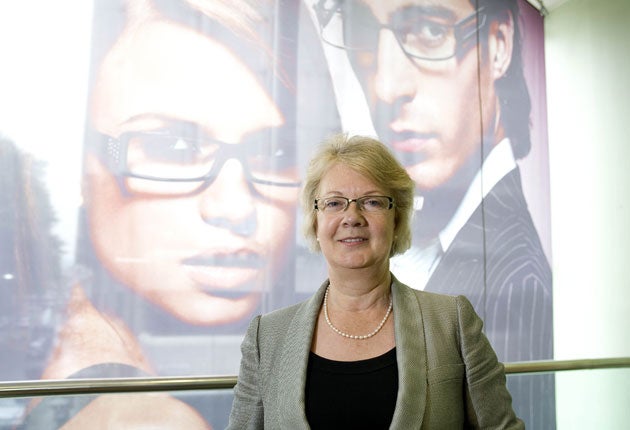Want to be a billionaire? You should have founded Specsavers

Your support helps us to tell the story
From reproductive rights to climate change to Big Tech, The Independent is on the ground when the story is developing. Whether it's investigating the financials of Elon Musk's pro-Trump PAC or producing our latest documentary, 'The A Word', which shines a light on the American women fighting for reproductive rights, we know how important it is to parse out the facts from the messaging.
At such a critical moment in US history, we need reporters on the ground. Your donation allows us to keep sending journalists to speak to both sides of the story.
The Independent is trusted by Americans across the entire political spectrum. And unlike many other quality news outlets, we choose not to lock Americans out of our reporting and analysis with paywalls. We believe quality journalism should be available to everyone, paid for by those who can afford it.
Your support makes all the difference.Even as the founder of Specsavers, Dame Mary Perkins could perhaps be forgiven for squinting at the number of zeros beside her name. She is Britain's first self-made billionaire according to The Sunday Times Rich List, joining 72 others in Britain who have at least 10 figures in their bank accounts.
The rest of the country and its economy might be struggling to get going again, but the recession must seem a distant memory for Britain's 1,000 richest people. They are now worth a collective £395.8bn, and have increased their wealth by 18 per cent during the past 12 months. And following the record rise of 30 per cent last year, the list shows that the straitening times of 2009 – when £155bn was wiped from their fortunes – are behind them.
Dame Mary and her husband Douglas enjoyed a particularly successful year, with their wealth estimated to have risen by 40 per cent. Their cut-price opticians is now worth £1.1bn, with more than a thousand stores spread across 10 countries. It has been helped by the slogan "Should have gone to Specsavers" providing free advertising by planting itself in the popular lexicon. At number 56 in the list, however, Dame Mary remains well short of frontrunner Lakshmi Mittal. Significant falls in the share price of his steel business, ArcelorMittal, shrunk his wealth by £5bn in the past year, yet he still remains another £5bn ahead of the nearest contender, Uzbeki businessman Alisher Usmanov.
Mr Usmanov rose from sixth to second on the list after his wealth grew 164 per cent to £12.4bn in the past year. Now he is above Chelsea FC's owner Roman Abramovich, some fans of London football rivals Arsenal may wish it was Mr Usmanov who was increasing his stake in the club rather than Stan Kroenke, who is not included in the list because he is based in the US, but is worth a trifling £1.6bn.
The highest new entrants were two of the four Hinduja brothers, Gopi and Sri, who are now based in Britain. Their share of the family business, which has assets in fields ranging from car building, energy and defence, was "cautiously" put at £6bn.
Malaysian businesswoman Christina Ong, who has a stake in the Mulberry fashion brand, also had a remarkable 12 months with her family's fortune shooting up 491 per cent to £650m.
Financiers and property magnates are the mainstay of the list, with a healthy splattering of retailers.
On the same day our sister paper, The Independent on Sunday, published its Happy List 2011, a compendium of people who have contributed to making Britain a bettter place to live. Among the entries were children's author Lauren Child, space scientist Maggie Aderin-Pococok and inventor Trevor Bayliss.
Join our commenting forum
Join thought-provoking conversations, follow other Independent readers and see their replies
Comments